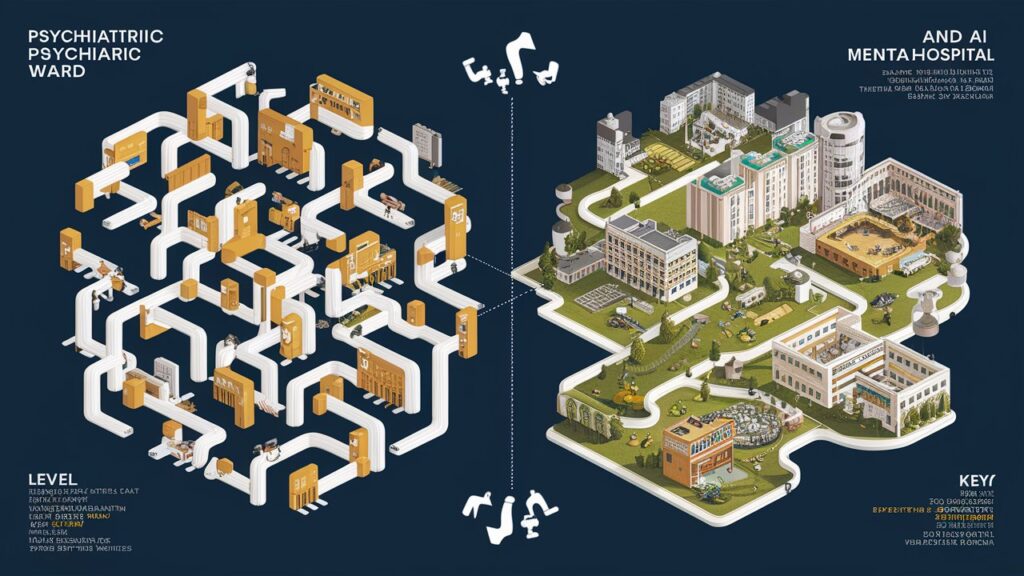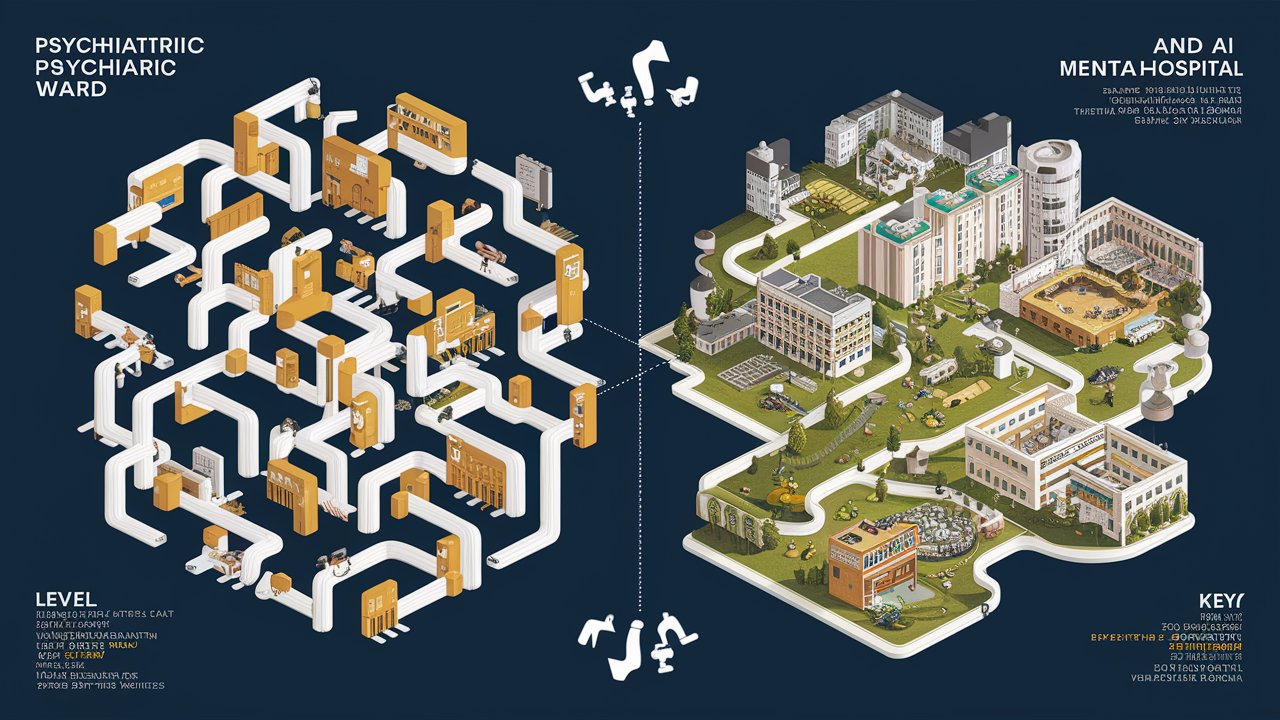
In the realm of mental health care, the terms “psych ward” and “mental hospital” are often used interchangeably, but they represent different types of facilities with distinct roles and purposes. Understanding these differences is crucial for anyone seeking or providing mental health care. This article explores the key distinctions between psych wards and mental hospitals, clarifying their functions, treatment approaches, and patient experiences.
What is a Psych Ward?
Definition and Purpose
A psych ward, short for psychiatric ward, is a specialized unit within a general hospital or a dedicated psychiatric facility designed to provide acute care for individuals experiencing severe mental health crises. Psych wards are typically used for short-term stays and are focused on stabilizing patients in immediate distress.
Characteristics of Psych Wards
- Short-Term Care: Psych wards are intended for short-term stays, often ranging from a few days to a couple of weeks. The goal is to stabilize the patient and address immediate psychiatric needs.
- Acute Crisis Management: These wards are equipped to handle acute mental health crises, including severe depression, anxiety, psychosis, and suicidal ideation. The primary focus is on crisis intervention and stabilization.
- Integrated Medical Care: Since psych wards are usually part of general hospitals, they offer integrated medical care. Patients may receive treatment for co-occurring physical health issues alongside psychiatric care.
Treatment and Services
- Medication Management: Psych wards often involve medication adjustments and management to address acute symptoms and stabilize the patient’s condition.
- Therapeutic Interventions: Patients may receive therapeutic interventions, including individual therapy, group therapy, and crisis counseling, to support their immediate recovery.
- Safety Measures: Due to the nature of acute crises, psych wards implement strict safety measures to protect patients and staff. This includes monitoring, secure environments, and specialized staff training.
What is a Mental Hospital?
Definition and Purpose
A mental hospital, also known as a psychiatric hospital or mental health facility, is a specialized institution dedicated to providing comprehensive and long-term care for individuals with chronic or severe mental health conditions. Unlike psych wards, mental hospitals focus on longer-term treatment and management.
Characteristics of Mental Hospitals
- Long-Term Care: Mental hospitals provide long-term care and support for individuals with ongoing or persistent mental health issues. Stays can vary from several months to years, depending on the patient’s needs.
- Comprehensive Treatment: These facilities offer a broad range of mental health services, including long-term therapeutic interventions, rehabilitation, and support for daily living.
- Residential Setting: Mental hospitals often provide a residential setting where patients live on-site and receive continuous care and support.
Treatment and Services
- Holistic Care: Mental hospitals focus on holistic care, addressing not only psychiatric symptoms but also the overall well-being of patients. This includes physical health, social skills, and daily functioning.
- Therapeutic Programs: Patients participate in structured therapeutic programs, including individual therapy, group therapy, occupational therapy, and recreational activities.
- Community Integration: Mental hospitals often emphasize community integration and rehabilitation, helping patients develop skills for independent living and social engagement.
Key Differences Between Psych Wards and Mental Hospitals
1. Duration of Stay
- Psych Ward: Short-term stay (days to weeks) for acute crisis management.
- Mental Hospital: Long-term stay (months to years) for ongoing treatment and support.
2. Focus of Care
- Psych Ward: Acute crisis intervention and stabilization.
- Mental Hospital: Comprehensive and long-term care for chronic mental health conditions.
3. Treatment Approach
- Psych Ward: Immediate medication management and crisis counseling.
- Mental Hospital: Holistic treatment, including therapeutic programs and rehabilitation.
4. Setting
- Psych Ward: Typically located within general hospitals or standalone psychiatric facilities.
- Mental Hospital: Specialized institutions dedicated to long-term psychiatric care.
5. Patient Population
- Psych Ward: Individuals in acute mental health crises.
- Mental Hospital: Individuals with chronic or severe mental health conditions requiring ongoing care.
When to Seek Care
Understanding the difference between a psych ward and a mental hospital can help individuals and families make informed decisions about seeking mental health care:
- For Acute Crises: If someone is experiencing a severe mental health crisis, such as suicidal thoughts or intense psychosis, a psych ward is the appropriate setting for immediate stabilization and intervention.
- For Long-Term Care: For individuals with chronic mental health conditions needing ongoing support, a mental hospital provides the comprehensive and continuous care required for long-term management and rehabilitation.
Conclusion
Both psych wards and mental hospitals play vital roles in the mental health care system, each serving distinct purposes and patient needs. Psych wards focus on short-term crisis management and stabilization, while mental hospitals offer long-term care and rehabilitation for chronic conditions. Understanding these differences ensures that individuals receive the appropriate level of care based on their specific mental health needs.
For more information on mental health care options and resources, visit The Insider’s Views.


